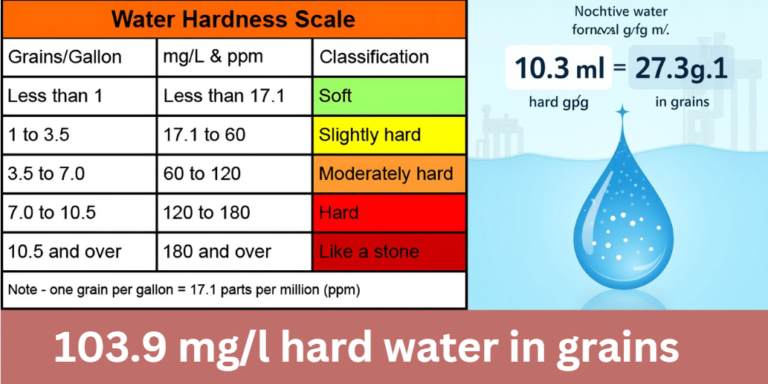Exploring “how mcdonald’s food is a moral myopia”: An In-Depth Guide to Fast-Food Ethics and Corporate Responsibility
Fast food has long been synonymous with convenience, efficiency, and mass production. Yet behind the globally recognized brand of McDonald’s lies a set of practices that have sparked ethical debates.
This guide examines “how mcdonald’s food is a moral myopia”, meaning that the focus on profitability and efficiency can lead to overlooking ethical dilemmas such as environmental harm, poor labor conditions, and animal welfare issues. In this article, readers will gain a deep understanding of the controversies, historical context, and societal implications tied to fast-food ethics.
Historical Context and the Rise of Fast-Food Culture
The Evolution of McDonald’s Business Model
Over the decades, McDonald’s has transformed from a small local diner into a global powerhouse by refining a business model centered on efficiency and standardization. This evolution was driven by an unwavering focus on process optimization, cost reduction, and delivering consistent customer experiences.
The Role of Efficiency and Standardization
The fast-food industry is built on principles that emphasize rapid service and uniformity. This drive for efficiency, while enabling companies to serve millions daily, has also led to ethical oversights.
The concept of “how mcdonald’s food is a moral myopia” becomes evident when considering that these same efficiencies often come at the expense of ethical considerations, including environmental sustainability and employee welfare.
Early Ethical Concerns
From the early days of McDonald’s expansion, controversies began emerging. Critics argued that the relentless focus on profit and standardization sowed the seeds for moral blindness. Historical public debates and legal challenges have since highlighted the ethical pitfalls in fast-food production and corporate governance.
Understanding Moral Myopia in the Fast-Food Industry
Theoretical Foundations
Moral myopia refers to a kind of ethical short-sightedness where decision-makers ignore the broader consequences of their actions. Academics and ethicists have long studied this phenomenon, linking it to systems that prioritize efficiency and profit over moral responsibility.
Corporate Decision-Making and Ethical Oversight
In the fast-food sector, the drive for standardized procedures and rapid output often results in decision-making processes that downplay ethical issues. This lack of moral scrutiny is at the heart of “how mcdonald’s food is a moral myopia”—a state where harmful practices become normalized due to the overwhelming focus on measurable success.
Marketing Misdirection and Consumer Perception
Advertising and marketing strategies play a crucial role in shaping public perception. By emphasizing convenience, taste, and speed, fast-food giants mask the less savory ethical implications of their business models. This disconnect between the marketed image and the real ethical costs is a core aspect of the moral myopia discussed in this guide.
McDonald’s Business Practices Through an Ethical Lens
Animal Welfare and Factory Farming
McDonald’s sourcing practices often rely on intensive animal farming methods. These methods have been widely criticized for inhumane treatment and unsustainable practices. For instance, the use of factory-farmed livestock has raised concerns about poor living conditions and high mortality rates, shedding light on “how mcdonald’s food is a moral myopia” when ethical considerations are sidelined.
Environmental Impact and Sustainability Challenges
The fast-food industry contributes significantly to environmental degradation through packaging waste, high energy consumption, and unsustainable sourcing. Despite some efforts toward greener practices, many of McDonald’s operations continue to rely on processes that have substantial ecological footprints. A table below illustrates key environmental impacts and corresponding challenges:
| Impact Area | Challenge | Current Initiative |
|---|---|---|
| Packaging Waste | Excessive use of non-recyclable materials | Reduction and recycling programs |
| Energy Consumption | High energy usage in operations and logistics | Implementation of energy-efficient technologies |
| Sustainable Sourcing | Reliance on intensive farming practices | Limited progress in sustainable sourcing |
Labor Practices and Corporate Governance
Employee treatment is another critical area of concern. Reports of low wages, limited career growth, and subpar working conditions have fueled debates about ethical labor practices. Corporate governance structures often prioritize financial performance, contributing to a neglect of employee welfare and reinforcing the concept of “how mcdonald’s food is a moral myopia”.
Marketing Strategies and the Creation of “New Needs”
Fast-food advertising often creates an illusion of necessity. Through persuasive messaging and appealing visuals, consumers are encouraged to adopt habits that align with the industry’s fast-paced culture. This tactic not only obscures ethical issues but also reinforces the disconnect between consumer values and actual practices.
Comparative Analysis: McDonald’s Versus Its Competitors
Benchmarking Ethical Practices
When comparing McDonald’s with its competitors, it becomes clear that while many fast-food chains share similar challenges, McDonald’s often sets the benchmark for both positive initiatives and ethical controversies. Analyzing ethical standards across the industry provides valuable insights into where McDonald’s excels and where it falls short.
Unique Aspects of McDonald’s Model
McDonald’s business model is unique due to its immense scale and global reach. This scale intensifies both the benefits of its efficient operations and the drawbacks of its ethical oversights. The interplay of standardized practices and ethical neglect is a prime example of “how mcdonald’s food is a moral myopia” on a global stage.
Lessons from Industry Best Practices
Competitors that have implemented more transparent ethical practices serve as examples for potential reforms. Adopting strategies such as better employee welfare programs, sustainable sourcing, and responsible advertising can help mitigate the ethical issues prevalent in the fast-food sector.
In-Depth Case Studies and Real-World Examples
Landmark Controversies
Historical legal battles, such as the McLibel case, have brought public attention to the ethical practices of McDonald’s. These cases illustrate the long-standing debate over the company’s role in perpetuating harmful practices and how its corporate decisions have real-world ethical implications.
Scandals Involving Animal Welfare and Environmental Degradation
Specific incidents—ranging from allegations of inhumane treatment in factory farms to environmental scandals involving waste management—highlight the tangible impacts of the company’s practices. These case studies offer clear examples of “how mcdonald’s food is a moral myopia” by showcasing the disconnect between business priorities and ethical responsibility.
Public and Media Reactions
Media coverage and public protests have played significant roles in holding McDonald’s accountable. The reaction of consumers and advocacy groups has often forced the company to implement changes, albeit sometimes superficially, to address growing ethical concerns.
Expert Opinions and Academic Perspectives
Interviews with Ethicists and Industry Experts
Experts in corporate ethics and food production have provided valuable insights into the moral shortcomings of fast-food practices. Interviews reveal that many industry leaders see the current model as unsustainable and morally compromised.
Analysis of Key Academic Studies
A number of academic studies have analyzed the ethical dimensions of fast-food operations. These studies often point out that the intense focus on efficiency and profit leads to a form of ethical blindness—a concept central to understanding “how mcdonald’s food is a moral myopia”.
The Role of Thought Leadership
Influential voices in academia and ethics continue to shape public discourse on corporate responsibility. Their analyses not only critique current practices but also suggest viable pathways for reform and improvement.
Consumer Impact: Health, Social, and Cultural Implications
Health Risks and Nutritional Concerns
The health implications of consuming fast food are well-documented. The high fat, sodium, and sugar content in many products contribute to long-term health issues such as obesity and heart disease. This is a direct reflection of “how mcdonald’s food is a moral myopia”—prioritizing taste and convenience over nutritional well-being.
Social Consequences of Fast-Food Culture
Beyond individual health, fast-food culture influences social behaviors and community dynamics. The normalization of convenience eating can erode traditional dietary practices and contribute to a broader cultural shift towards processed foods.
Cultural Shifts and the Erosion of Traditional Values
As global brands like McDonald’s expand, local food traditions can be overshadowed. The drive for standardization and efficiency often comes at the cost of cultural diversity, reinforcing the argument that the industry’s practices exemplify “how mcdonald’s food is a moral myopia” in neglecting social and cultural values.
Strategies for Ethical Consumption and Corporate Reform
Empowering the Ethical Consumer
Consumers play a critical role in driving change. By making informed choices—such as opting for restaurants with transparent ethical practices—individuals can help shift the industry toward more sustainable practices. This section provides practical tips and recommendations for making ethical consumption decisions.
Policy and Activism: Driving Change in the Industry
Government policies and consumer advocacy are powerful tools for reform. Regulatory measures can force companies to adopt higher ethical standards, while activism can raise public awareness and demand accountability.
Recommendations for Corporate Reforms
For companies like McDonald’s, concrete steps can be taken to bridge the gap between profit and ethics. These include:
- Enhancing transparency in sourcing and production practices.
- Investing in sustainable and humane farming methods.
- Implementing robust employee welfare programs.
- Adopting responsible marketing strategies that do not obscure ethical considerations.
A sample reform roadmap table is presented below:
| Reform Area | Recommended Action | Expected Benefit |
|---|---|---|
| Sustainable Sourcing | Shift to certified humane and eco-friendly suppliers | Reduced environmental impact and improved animal welfare |
| Labor Practices | Increase wages and improve working conditions | Enhanced employee satisfaction and reduced turnover |
| Marketing Transparency | Disclose ethical practices and product sourcing clearly | Improved consumer trust and brand reputation |
| Environmental Initiatives | Reduce packaging waste and adopt renewable energy solutions | Lower carbon footprint and cost savings |
Future Outlook and the Path Forward
Emerging Trends in Ethical Food Production
Innovations in sustainable agriculture and renewable energy are poised to transform the fast-food industry. These trends offer hope for a future where ethical considerations are no longer sidelined.
The Role of Technology in Overcoming Moral Myopia
Advancements in data analytics, blockchain, and transparency technologies provide new avenues for tracking and verifying ethical practices. This can help bridge the gap between corporate actions and public accountability.
Long-Term Projections for the Fast-Food Industry
While challenges remain, the pressure from consumers, regulators, and activist groups is driving gradual reform. The future of the industry depends on its ability to balance profitability with ethical responsibility.
Frequently asked questions
FAQ 1: How can fast-food companies integrate real-time feedback from consumers to continuously improve ethical practices?
Many companies are exploring interactive platforms, mobile apps, and social media channels that allow consumers to directly share feedback. By harnessing real-time data, fast-food chains can quickly identify emerging ethical concerns and adjust policies before they escalate into public controversies.
FAQ 2: What role can independent third-party audits play in ensuring transparency in the fast-food industry?
Independent audits help verify that companies adhere to ethical sourcing, labor, and environmental standards. These audits, conducted by certified organizations, offer unbiased reports that enhance public trust and provide actionable insights for continuous improvement.
FAQ 3: How might emerging technologies such as blockchain contribute to more ethical fast-food supply chains?
Blockchain technology can create a transparent, immutable record of each step in the supply chain—from farm to table. This enhanced traceability can ensure that all practices are verified against ethical standards, enabling consumers to make informed choices and companies to demonstrate accountability.
FAQ 4: What educational initiatives can help shift consumer perceptions towards supporting ethical food production?
Educational campaigns, community outreach programs, and partnerships with local schools can raise awareness about the impact of fast-food practices. By teaching consumers about sustainable choices and the true costs behind industrial food production, these initiatives help foster a culture of informed ethical consumption.
FAQ 5: What are some examples of policy changes that could drive ethical reform in the fast-food industry?
Policy changes such as mandatory disclosure of sourcing practices, improved labor laws, and stricter environmental regulations can create a more accountable framework. Additionally, incentivizing sustainable practices through tax breaks or grants may encourage companies to adopt higher ethical standards across the board.
Conclusion
In summary, this guide has explored “how mcdonald’s food is a moral myopia” by examining the historical context, ethical implications, and real-world impacts of fast-food practices. From environmental degradation and labor issues to the creation of misleading marketing narratives, the focus on efficiency and profit often comes at a significant ethical cost.
Empowering consumers, enacting policy reforms, and leveraging technology can pave the way for a more sustainable and ethical fast-food industry.
As readers navigate this comprehensive analysis, the hope is that they will gain a deeper understanding of the hidden costs behind fast-food convenience and feel motivated to advocate for meaningful change.
Recomended posts
Lovelolablog Code: Your Complete Guide to Discounts, Customizations, and Blogging Success
The Ultimate Guide to Fannie May Premium Milk Chocolate Pixies Holiday Gift Box (ASIN: b09lkrypgw)
Rhythmical Bossa ONJ3: The Ultimate Guide to a New Era of Bossa Nova Fusion
The Ultimate Guide to 7 Days to Die servers host randon gen 1.0 b313
Ultimate Guide to Ward Churchill’s In A Pig’s Eye






